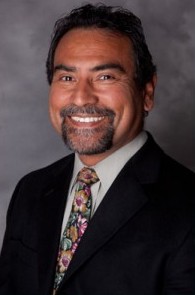Religious institutions continue to perpetuate child sexual abuse. Ongoing abuse further undermines any claims to moral authority by religious leaders. Now that religious groups are being forced to disclose this collusion, we must do our part to end religious child maltreatment, abuse and betrayal.
Stories of clergy sexual abuse are all too familiar to those of us whose lives have been devastated by such crimes. And we feel further betrayed by the institutional leaders and their followers who continue to protect abusers and turned their backs on victims.
Here are just a few examples:
- It has been a decade since the Archdiocese of Los Angeles settled a class action lawsuit, avoiding court proceedings wherein graphic details of clergy sexual abuse and cover up would be public.
- This June, the findings of a Pennsylvania grand jury related to child abuse allegations in 6 Catholic dioceses will be released.
- In Chile, a court has determined that “a series of absolutely reprehensible acts” have occurred in the Catholic church that involved “unacceptable abuses of power, of conscience and sexual abuse.”
Real healing in these cases and in so many others will take years, not only for those who are directly affected by sexual abuse and betrayal, but also for the larger communities as they begin to take responsibility for the collusion, denial, and willful ignorance of cases that continue to arise.
The impact of abuse and betrayal
Ongoing abuse further undermines any claims to moral authority by religious leaders and followers. More tangibly, some victims internalize the shame and betrayal of not being believed and supported and ultimately express it through suicide. Around 12 years ago, I wrote this in a journal about my own experience of having been sexually abused by a priest when I was a teenager:
Going to support meetings has been like going to a cancer ward and seeing that I’m a member. That’s where I’ve seen the looks of silenced frustration, buried rage, and profound betrayal and understood myself in a way that I hadn’t seen before. I heard recently that another victim committed suicide after he learned that his criminal case was being thrown out of court because he reported the molest after the statute of limitations allowed. His mother said that when the case was thrown out of court, her son lost hope. He lost a sense of being heard, understood, believed and that any real change would come about as a result of his abuse. I understand his need to see a change come as a result of my and hundreds of people’s experiences. I understand what it’s like to feel insane, holding a secret that no one wants to hear, and feel as though if I can’t be believed about something at the core of my life experience that I practically don’t exist.
The pope has expressed an understanding that some victims internalize the shame and betrayal of not being believed and supported through suicide. When will the larger public understand the impact of abuse and betrayal?
How you can help
Here are some important steps you can take to to reduce cases of clergy sexual abuse:
- Believe and support victims who come forward and hold abusers accountable. In one case, the abuser, who was a religious authority, was given a standing ovation and the victim was shamed. Communities must do better to prioritize the needs of victims.
- Question the moral authority of religious leaders who collude with sexual predators. Abuse is perpetuated when blind belief blocks us to see what is right in front of our eyes. As an example, Christian evangelist Franklin Graham recently stated that Trump’s affair with Stormy Daniels was “nobody’s business.” (A better role model is Mildred Hayes, the character played by Frances McDormand in the film “Three Billboard Outside Ebbing, Missouri.” When priest shames Mildred in front of her son as a way to silence her, she questions his moral authority, accusing him of colluding with sexual predators by not speaking up in defense of victims.)
- Educate yourself on the prevalence and patterns of sexual predators.Many parents are shocked to learn that their children have been victimized by sexual predators, often because they are unfamiliar with patterns that include grooming and testing boundaries.
- Support advocacy organizations that support victims and survivors and raise awareness of clergy sexual abuse. The Child-Friendly Faith Project, a group for which I serve as president, is one of many. The CFFP supports survivors and helps people of faith learn and transform environments that perpetuate clergy religious authority sexual abuse.
You can help end abuse and betrayal. Join the CFFP by going to our Facebook and Twitter pages or send us an email.

